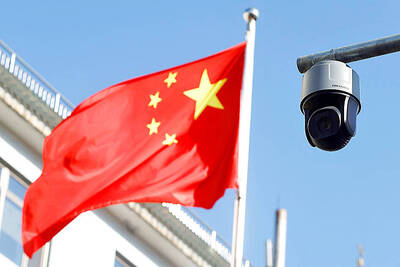Pingtung County’s population declined by 6,600 people last year, marking 14 consecutive years of dwindling population.
The latest data compiled by the Ministry of the Interior gave Pingtung County’s total population as 841,253, consisting of 430,000 male residents and 410,000 female residents.
A total of 4,700 couples married in the county last year, while 1,900 couples filed for divorce, the data showed.
The number of people above the age of 65 exceeded 121,000, corresponding to 14.5 percent of the county’s total population, the ministry data show.
There were 5,266 births and 8,114 deaths in the county last year, while 3,816 people moved out of Pingtung.
Kaohsiung received the majority of the people moving out of Pingtung, with five other cities accounting for the rest, the Pingtung County Government said, adding that the data show females are more inclined to move away from the area than males.
Compared with 2014, the county lost 6,664 residents, bringing the population growth/decrease ratio to 78 per million.
The Pingtung County Government’s department of civil affairs said the county’s population, which was 460,000 in 1950, reached its peak of 913,000 residents in 1997, adding that the county’s population has been declining since 2002.
Department Director Cheng Wen-hua (鄭文華) said the county has been affected by the restructuring of Kaohsiung into a special municipality and the nationwide decline in birth rates.
Low birth rates and county residents moving to other cities are problems that many counties are facing and the local governments are not equipped to handle the issue, Cheng said.
The central government should make solving the problem a priority, Cheng said, adding that aside from improving the overall economy, the central government should not be focusing its resources on special municipalities.
Only by giving rural counties and townships more resources can they slowly reverse the emigration problem, Cheng said.

POLAM KOPITIAM CASE: Of the two people still in hospital, one has undergone a liver transplant and is improving, while the other is being evaluated for a liver transplant A fourth person has died from bongkrek acid poisoning linked to the Polam Kopitiam (寶林茶室) restaurant in Taipei’s Far Eastern Sogo Xinyi A13 Department Store, the Ministry of Health and Welfare said yesterday, as two other people remain seriously ill in hospital. The first death was reported on March 24. The man had been 39 years old and had eaten at the restaurant on March 22. As more cases of suspected food poisoning involving people who had eaten at the restaurant were reported by hospitals on March 26, the ministry and the Taipei Department of Health launched an investigation. The Food and

The long-awaited Taichung aquarium is expected to open next year after more than a decade of development. The building in Cingshui District (清水) is to feature a large ocean aquarium on the first floor, coral display area on the second floor, a jellyfish tank and Dajia River (大甲溪) basin display on the third, a river estuary display and restaurant on the fourth, and a cafe and garden on the fifth. As it is near Wuci Fishing Port (梧棲漁港), many are expecting the opening of the aquarium to bring more tourism to the harbor. Speaking at the city council on Monday, Taichung City Councilor

A fourth person has died in a food poisoning outbreak linked to the Xinyi (信義) branch of Malaysian restaurant chain Polam Kopitiam (寶林茶室) in Taipei, Deputy Minister of Health and Welfare Victor Wang (王必勝) said on Monday. It was the second fatality in three days, after another was announced on Saturday. The 40-year-old woman experienced multiple organ failure in the early hours on Monday, and the family decided not to undergo emergency resuscitation, Wang said. She initially showed signs of improvement after seeking medical treatment for nausea, vomiting and diarrhea, but her condition worsened due to an infection, he said. Two others who

Taiwanese should be mindful when visiting China, as Beijing in July is likely to tighten the implementation of policies on national security following the introduction of two regulations, a researcher said on Saturday. China on Friday unveiled the regulations governing the law enforcement and judicial activities of national security agencies. They would help crack down on “illegal” and “criminal” activities that Beijing considers to be endangering national security, according to reports by China’s state media. The definition of what constitutes a national security threat in China is vague, Taiwan Thinktank researcher Wu Se-chih (吳瑟致) said. The two procedural regulations are to provide Chinese